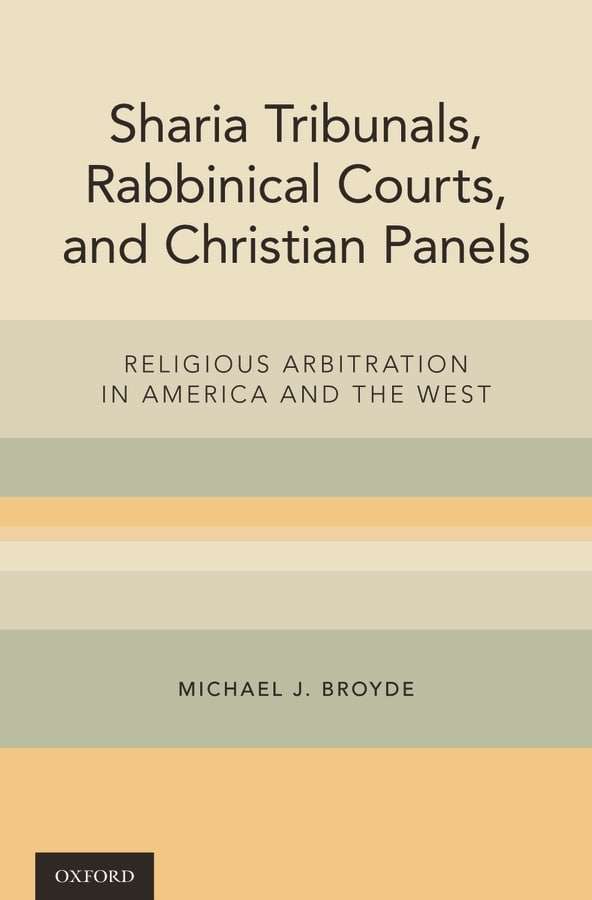The Volokh Conspiracy
Mostly law professors | Sometimes contrarian | Often libertarian | Always independent
Michael Broyde guest-blogging on 'Sharia Tribunals, Rabbinical Courts, and Christian Panels: Religious Arbitration in America and the West'

I'm delighted to report that Prof. Michael Broyde (Emory Law School), will be guest-blogging here this coming week on his new book, "Sharia Tribunals, Rabbinical Courts, and Christian Panels: Religious Arbitration in America and the West" (just published by the Oxford University Press). Broyde has written extensively on Jewish law - he is both an ordained rabbi and a former director of the Beth Din of America, the largest Jewish arbitration tribunal in the United States - but in his posts (as in his book) he'll be talking more generally about religious arbitration in various religious traditions. Here's his summary of his forthcoming posts:
This book tackles the problem of religious arbitration as an outsider, asking whether religious arbitration is a valuable good for a secular society, or merely an activity which is unfortunately protected by the First Amendment (like a White Supremacist Church) but which we all wish would really go away, and which should be granted only the most minimal protections the constitution requires.
These posts are divided into five: The first explains the rise in religious arbitration and the law governing it. The second explains the evolution of religious arbitration in America, focusing on the Jewish experience, which is the most nuanced and complex in America now. The third explores the criticisms of religious arbitration and the fourth explains its virtues. The final post explores how this applies to the recent conversation about Islamic courts and what the rabbinical courts can teach Islamic courts about how to conduct religious arbitration.
I've long been interested in religious tribunals and more broadly in how the secular legal system deals with religious law, and I very much look forward to Broyde's posts.


Show Comments (0)